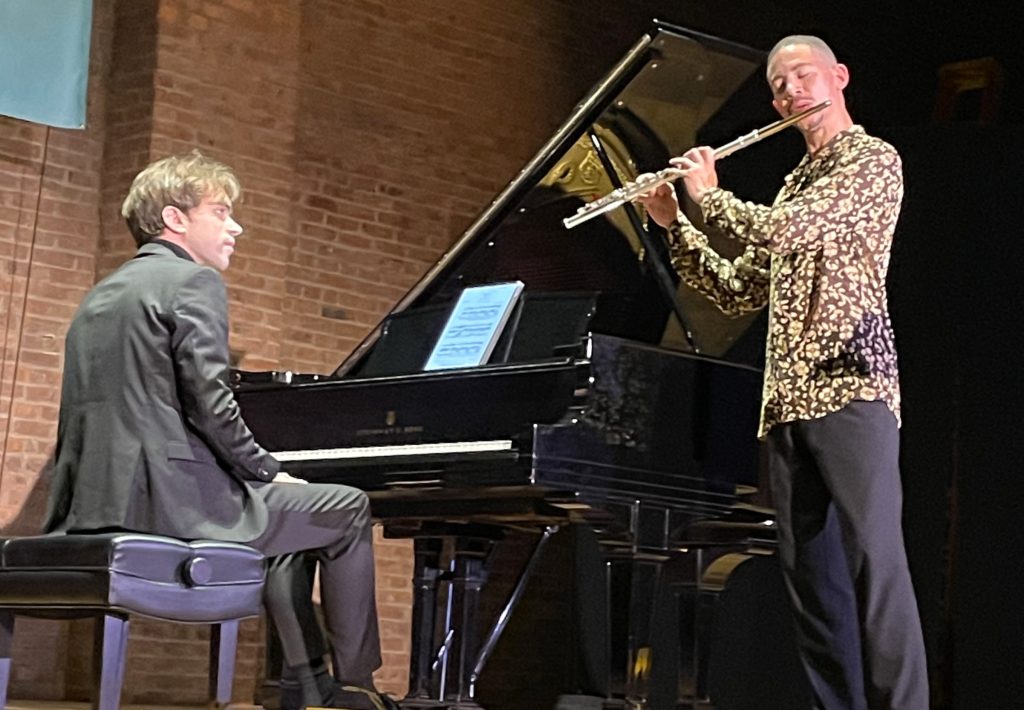
by Kevin T McEneaney
Anthony Trionfo, flutist, and Albert Cano Smit, pianist, both first-prize winners of the Wadsworth Young Concert Artists Award (in different years), teamed up to deliver an exciting, eclectic, varied program at The Stissing Center in Pine Plains on Saturday evening. The performers were introduced by David Hall of the noted Clarion Concert Series.
They opened with a late flute and piano Sonata by Francis Poulenc, who composed a series of elegies for departing friends and patrons, in this case, the Bostonian Elizabeth Sprague Coolidge, who died in November 1953. The composition was begun in 1956 and completed in March 1957. This work is generally acclaimed as Poulenc’s masterwork for woodwinds.
The opening Allegro announces melancholy at her death, followed by happy memories of Elizabeth’s spontaneous wit with brilliant tonal finesse and graceful phrasing on the flute. The second movement highlights mastery of the piano with a spontaneous edge which Smit brought to life through lithe fingering and compassionate emotion. Both instruments tightly cooperate in the concluding, rapid, and exuberant Presto with dazzling tonal variations which describes the joy Elizabeth created by being a patron of musicians. Here these two musicians played as if they were a single instrument.
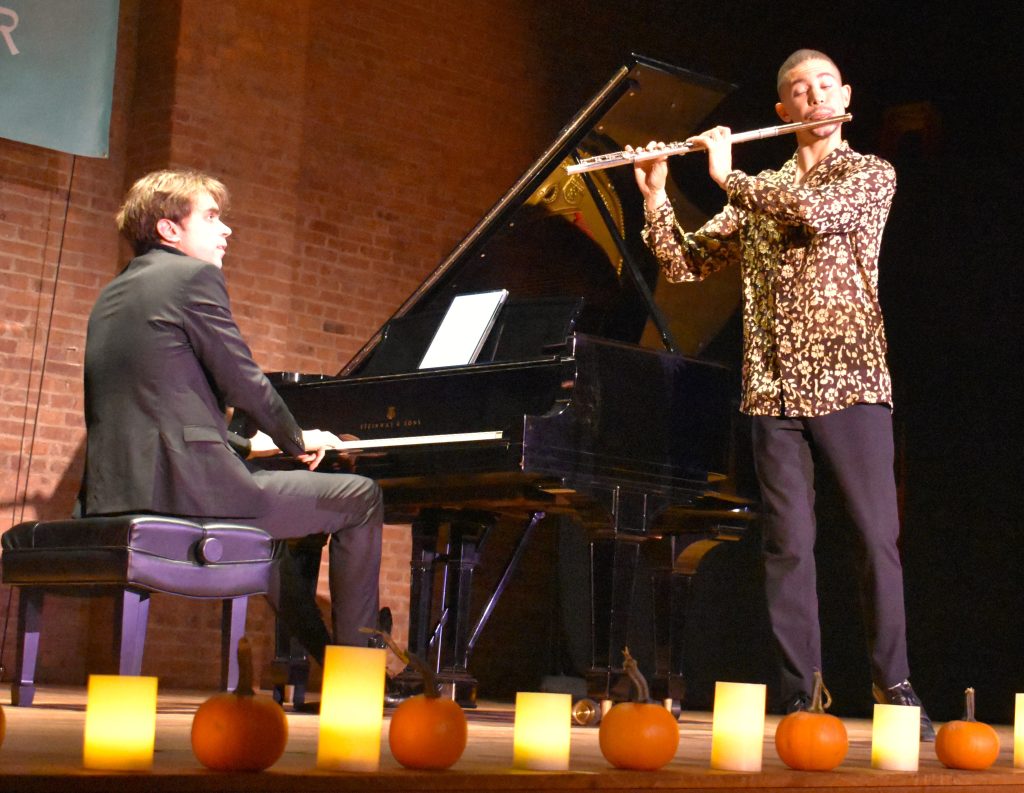
Romance, Op. 23 (1893) by Amy Beach (1867-1944), offered robust mystery in three parts. The first part was an elegant, resonant portrait of two people falling in love, with the flute portraying a female and the piano a male. The second part featured a memorable crescendo of mutual agreement. The third part musically depicted intercourse with a climatic finale. For its day, this was an astonishingly sophisticated, breathless, polished allegory from a female point of view. This composition is an incredible erotic masterpiece performed with articulate nuance.
2020: The Year We Could Not Breathe by Adrian Dee was a one-movement solo flute piece in four sections: “George Floyd,” “Protests,” “Respirators,” and “Wilderness.” The first dramatizing violence, the second anger, the third difficulty in breathing, and the fourth troubling confusion. Anthony performed these evocations with a host of unorthodox breathing techniques that wore the crumpled hat of inspired improvisation.
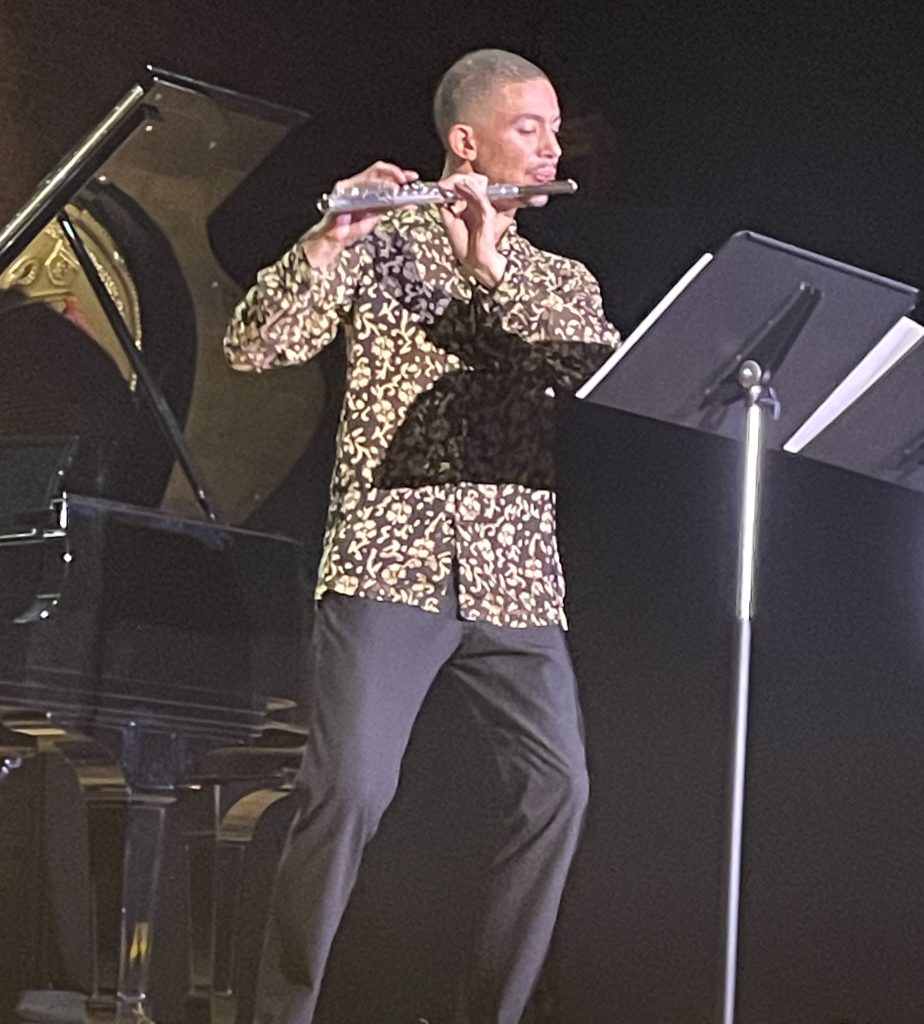
Flute Sonata, Op. 94 by Sergei Prokofiev (1943) is an unusual piece composed during World War II as a divertimento composition off the ballet Cinderella. Prokofiev’s favorite flutist was the Frenchman Georges Barrère. There is a folksy simplicity with genial melodies in this work, yet interpretations vary. I thought the opening was a pleasant walk in the countryside, then a satiric portrait of a local marching military band (the Scherzo, joke), followed by an appreciative portrait of a small-town holiday festival, then a dream of a happy and hopeful conclusion to the war although this daydream is threatened by the peril of the present in the concluding Rondo. Trionfo and Smit were knitted like a tight woolen sweater.
Sounds of the Forest by Sofia Gubaidulina, a contemporary Russian composer, was a short eight-minute work that exuded early morning and evening bird calls. This piece was exciting, mysterious, and engaging.
Variations on Time by Sebastian Currier, a modern American composer from Pennsylvania, presented a meditation on a jazz standard that undergoes four variations where the variations finally disclose at the end the theme they are riffing on.
Zoom Tube by Ian Clarke, a contemporary British flutist, provided the whacky concert Scherzo (joke). Anthony announced his solo as “the flute played like you have never heard.” There were many odd comic notes that I never thought the flute was capable of. We were in the comic Wonderland of Lewis Carroll!
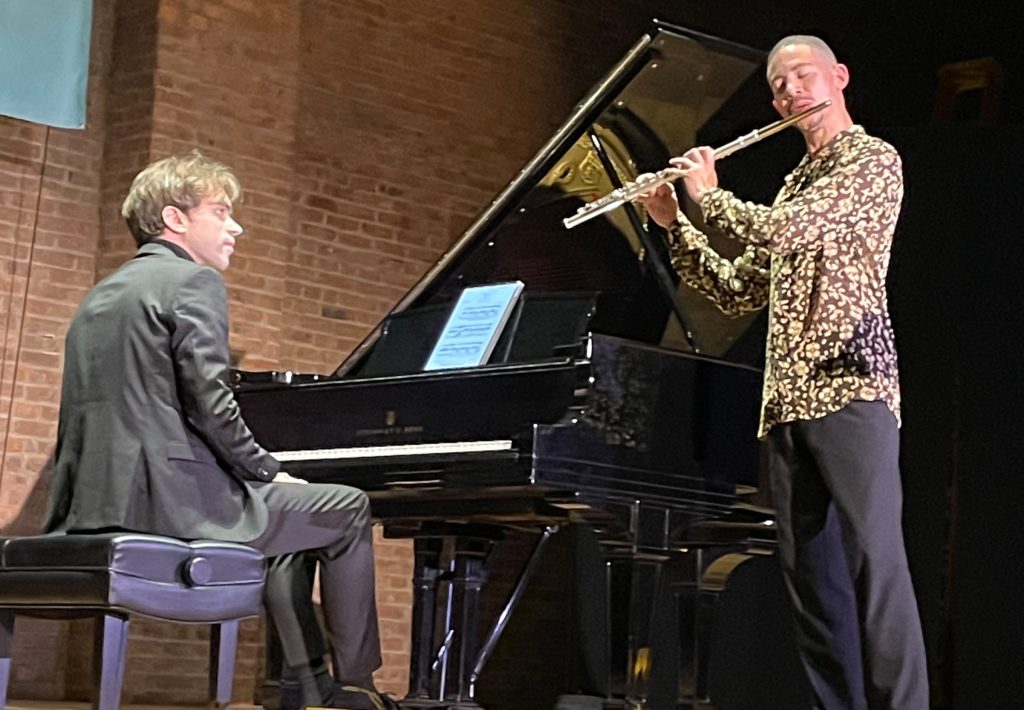
Syrinx (1913) by Claude Debussy was incidental music for the third act of the play Psyche by Gabriel Mourey that was not published during Debussy’s lifetime. This told the story of the girl and the invention of the Panpipe. Debussy was a master of both the piano and flute and here both instruments were so balanced and woven together that it appeared as a musical miracle. I thought this work to be the most difficult of all for both performers who delivered it with such ebullient panache.
Pan Dreams by pianist Jon Kimura Parker from Vancouver, Canada, currently a professor at Rice University, is an international star. This piece offered Smit an opportunity to lead and excel rather than provide background for the flute. A knowledgeable member of the audience informed me that Smit’s intensive style of playing was reminiscent of Harvey Van Cliburn’s style.
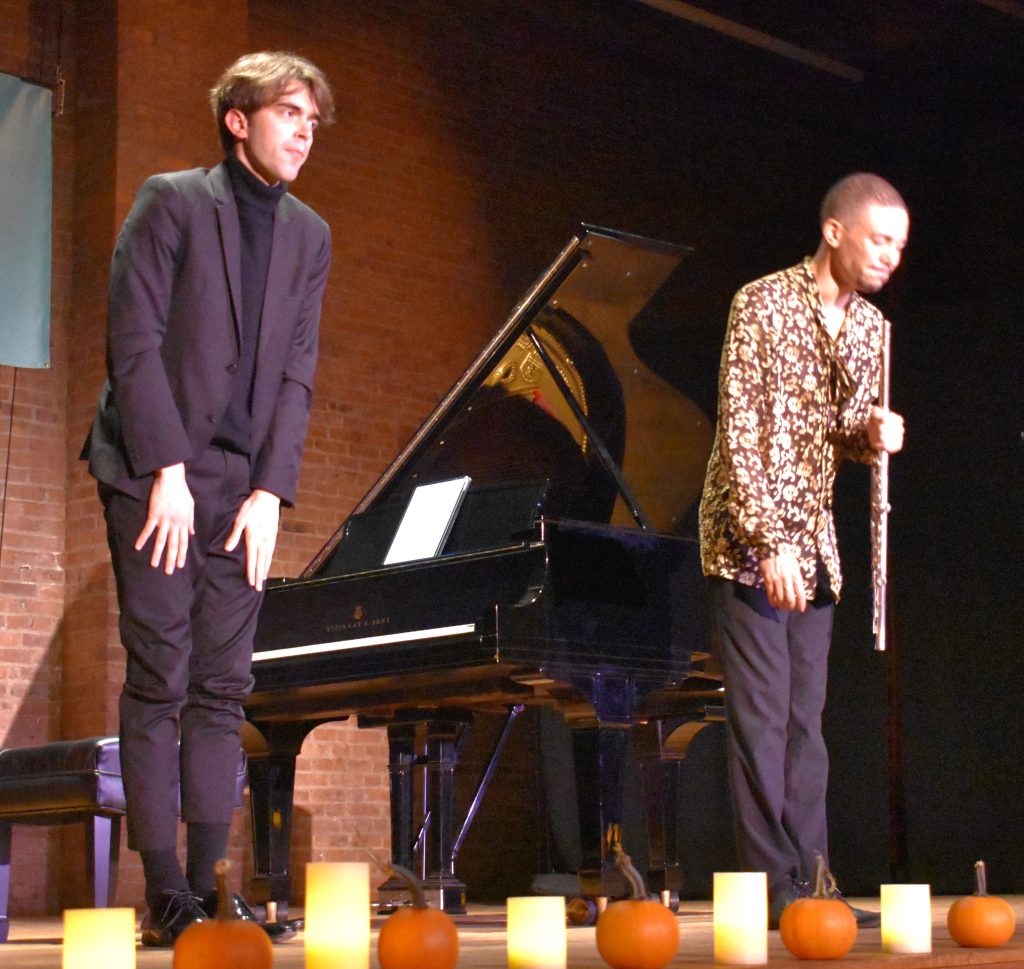
Trionfo played on a Lillian Burkart flute (Boston). Smit played the house Steinway donated by Stephen Kaye.
This dynamic duo presented a magnificent program to match their exceptional talents. Next year this Clarion Concert Series will feature the New York Philharmonic Quartet.